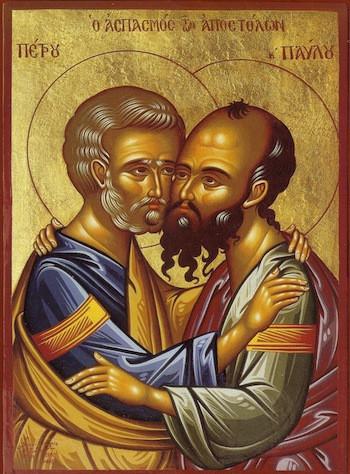
Funerals
Orthodox Christian funerals are held for faithful Orthodox Christians who have lived their lives in sacramental and canonical unity with the Eastern Orthodox Church. In other words, only those who have been baptized and chrismated in the Orthodox Church, and have had their marriage blessed in the Church (or have been granted an ecclesiastical divorce), are eligible for an Orthodox funeral. An Orthodox funeral is denied to any Orthodox Christian who has committed suicide, unless he or she was proven to be psychologically or mentally ill at the time of death.
Should there be a death in the family, the following steps should be taken:
- Immediately notify the family doctor or the county medical examiner (coroner) if the death occurred at home so he/she may examine the deceased and sign the death certificate. The body may not be removed otherwise.
- Call the funeral home of your choice to make arrangements and to pick up the body.
- Inform the parish priest, so that he may immediately offer the Trisagion prayers over the body of the deceased.
The Church has no objection to autopsies for the sake of determining the cause of death, furthering medical science, or donating any bodily organ (eyes, heart, etc.) for transplants, so long as the intent is to save or improve the quality of another human being’s life.
On the eve of the funeral, the priest will conduct a small prayer service for the dead, the Trisagion, either in the church or at the funeral home during the wake, wherever the deceased is lying in state. The same service is conducted at the cemetery, during the internment.
Cremation is absolutely forbidden by the Church, as being blasphemous to the body of man which is “the temple of the Holy Spirit”, as well as a denial of the important doctrine of the bodily resurrection of all the faithful in Christ. Insistence on cremation will result in refusal by the Church to allow a church service for the deceased.
The “makaria” following the funeral service is a fellowship meal served as a means of comforting the bereaved and expressing thanks to those who attended the services or assisted the family during their time of mourning.
Funeral services peculiar to certain lay organizations or brotherhoods should not be held from the evening following the Trisagion until the committal at the cemetery. Should the family wish to have another non-Orthodox clergyman offer a prayer for the deceased, he may do so only during the graveside service and only after the Orthodox Trisagion has been completed.